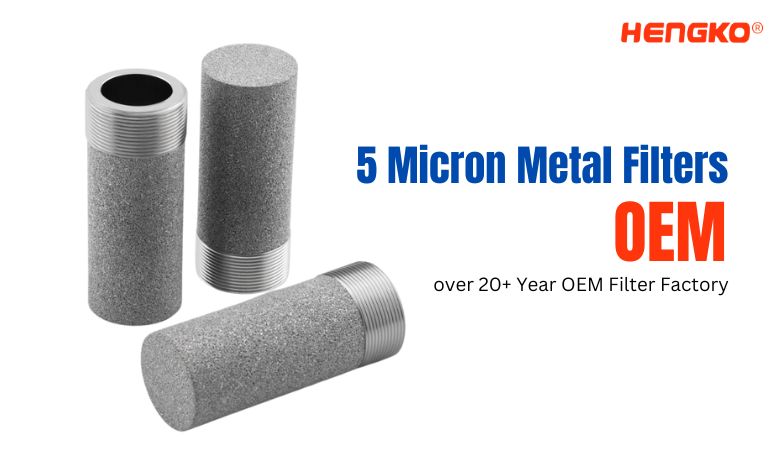-
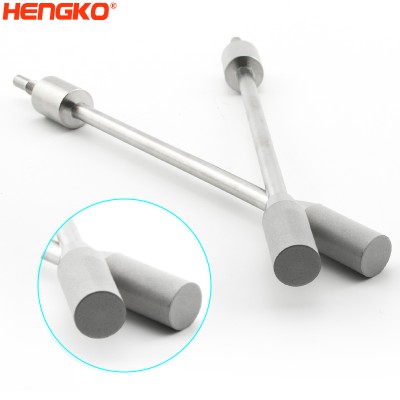
Hydrogen rich water machine – sintered SS 316L stainless steel 0.5 2 micron air o...
Hydrogen water is clean, powerful, and with hydron. It helps to purify the blood and gets blood moving. It can prevent many kinds of diseases and improve peo...
View Detail -
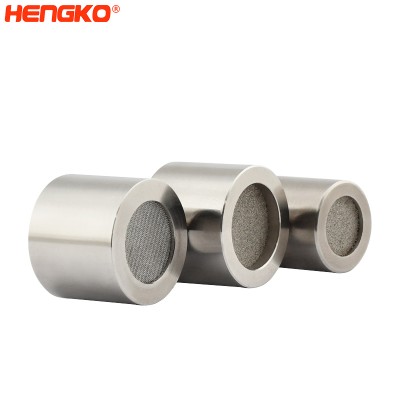
Fireproofing and anti-explosion 5 10 20 microns sintered metal gas sensor explosion pro...
HENGKO explosion-proof sensor housing is made of 316L stainless steel and aluminum for maximum corrosion protection. A sinter-bonded flame arrestor provides ...
View Detail -
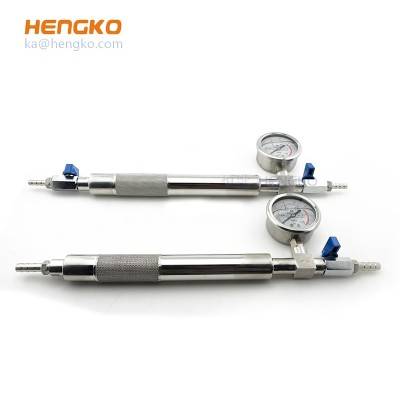
custom 5 60 micron gas pressure flow meter 316L metal stainless steel sintered porous f...
_<img src="https://www.hengko.com/uploads/HTB1WxA_aUvrK1RjSspc762zSXXaK.png" width="750" height="980" usemap="#HENGKO" bord...
View Detail -
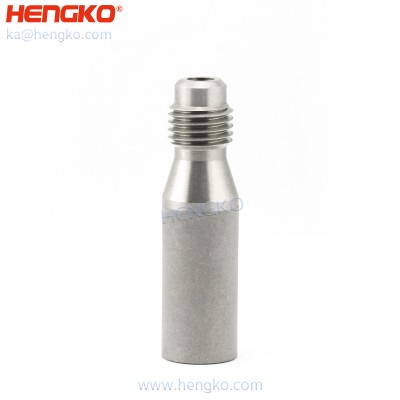
1/4″ Flare Thread Diffusion / Aeration/ Carbonating Stone 0.5/2.0 Micron Stainles...
Carbonate your beer in record time or aerate/oxygenate your wort like a pro with the 0.5 and 2 Micron Stainless Steel Diffusion Stone. The 0.5 and 2-micron ...
View Detail -
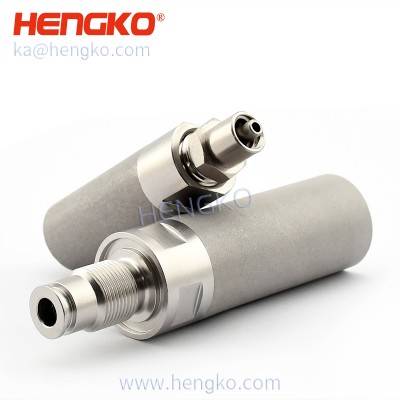
0.5, 2 Micron SFT01 SFT02 Homebrew Oxygenation Diffusion Stone Beer Carbonation Aeratio...
Product Name Specification SFT01 D5/8''*H3'' 0.5um with Flare thread, M14*1.0 thread SFT02 D5/8''*H3'' 1um with Flare thread, M14*1....
View Detail -
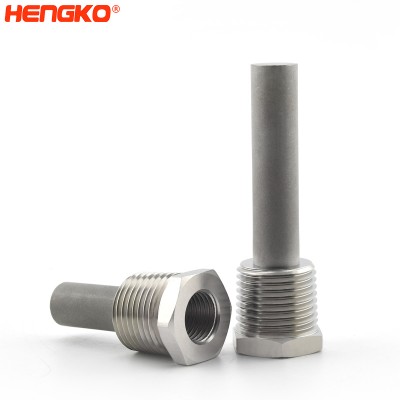
0.5, 2 Micron Oxygenation Stone Brewing Carbonation Aeration Diffusion Stone For DIY Ho...
HENGKO aeration stone is made of the food-grade best stainless steel material 316L, healthier, practical, durable, high temperature resistant, and anti-corr...
View Detail -
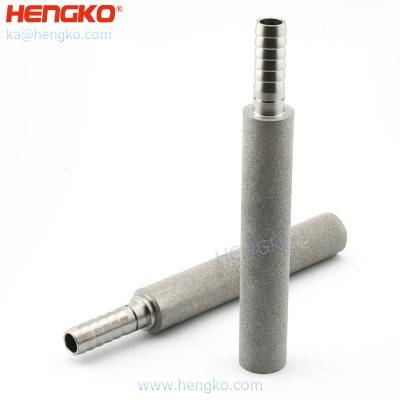
HENGKO 2, 10, 15 microns sintered porous metal stainless steel 316L aeration bubble dif...
This homebrew oxygenation aeration stone can diffuse oxygen into your beer keg for fermentation. It is made of stainless steel, has a strong structure, and h...
View Detail -
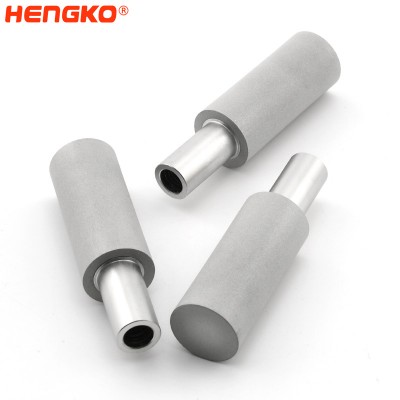
Stainless Diffusion Stone 0.5 2 Micron Oxygen Stone Fitting For Homebrew Wine Beer Tool...
Features: [Premium Quality] Constructed of food-grade material with 304 stainless steel 1/4″ barb to ensure durability, and no rust or leak. [Easy to Use] ...
View Detail -
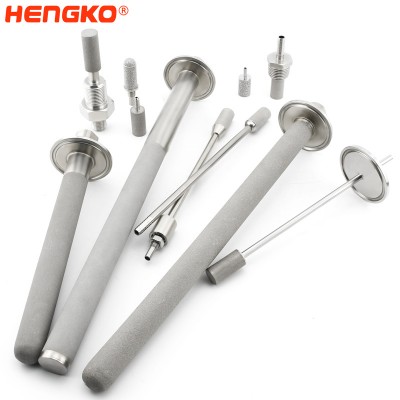
Stainless steel 316l SFC04 home brew 1.5” tri clamp fitting 2 micron diffusion st...
1. Better Than Shaking a Keg! 2. Are you tired of carbonating your beer the unpredictable way? You crank up the PSI in the keg, shake, and wait with ...
View Detail -
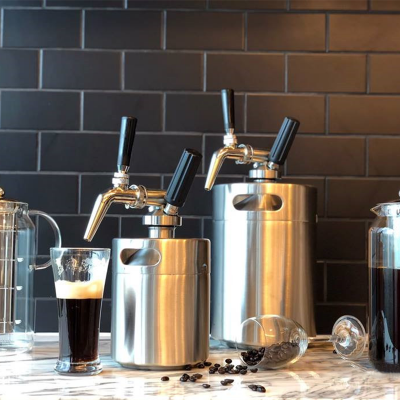
Nitro Cold Brew Nitrogen 0.5 Micron and 2 Micron Diffusion Stone Works with Infusion Ke...
Looking for a better way of infusion your cold brew coffee with nitrogen? You found it! One of the nitrogen-infused coffee hallmarks is that sweet cascade ...
View Detail -
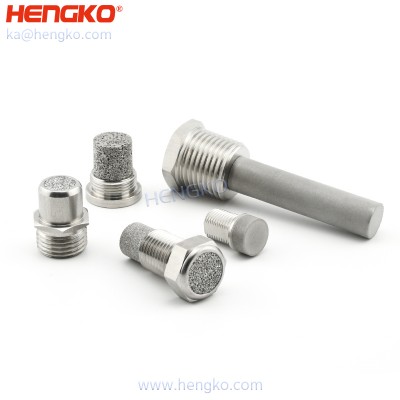
sintered air ozone diffuser stone .5 2 micron porous stainless steel 316 SS diffusion s...
Sintered air stone diffusers are often used for gas distribution and air aeration. They have a wide range of pore sizes from 0.2 microns to 120 microns allow...
View Detail -
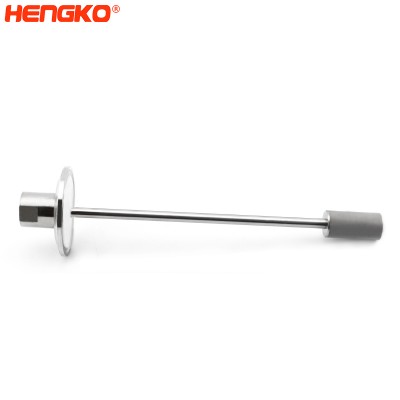
0.5 2 10 microns stainless steel home brewing wort beer pure oxygenation kit aeration w...
HENGKO carbonation stone is made of the food grade best stainless steel material 316L, healthier, practical, durable, high temperature resistant, and anti-c...
View Detail -
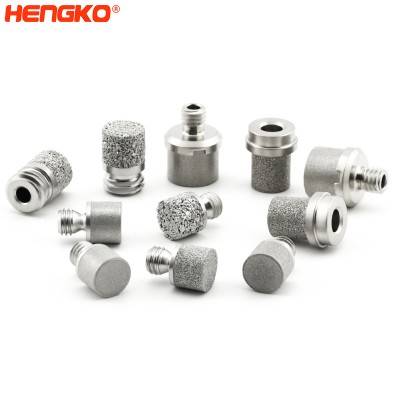
0.5 micron 2.0 stainless steel barb homebrew wort beer oxygen keg kit inline carbonatio...
HENGKO carbonation stone is made of the food grade best stainless steel material 316L, healthier, practical, durable, high temperature resistant, and anti-c...
View Detail -
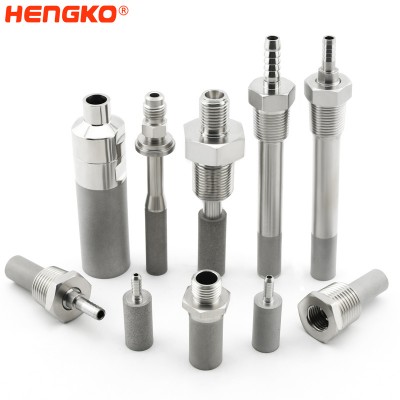
0.5 2.0 micron SS stainless steel beer oxygen air aeration carbonation stone with 3/16&...
0.5 2.0 micron SS stainless steel beer air aeration carbonation oxygen stone with 3/16" 1/4" 3/8" wand barb 1/2" NPT Thread for home brewing HENGKO oxyge...
View Detail -
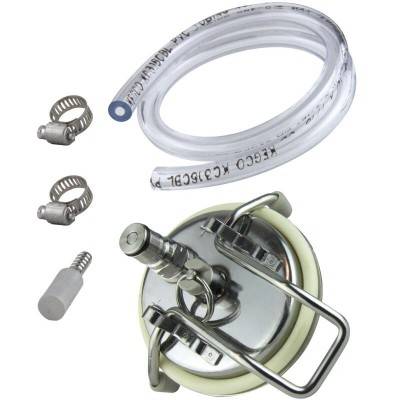
0.5 2 micron stainless steel home brewing wort beer aeration oxygen carbonation stone w...
HENGKO carbonation stone is made of the food grade best stainless steel material 316L, healthier, practical, durable, high temperature resistant, and anti-c...
View Detail -
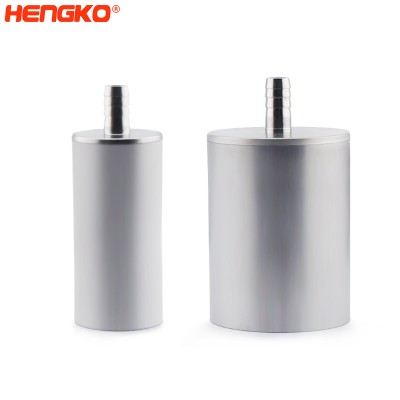
0.5 2 microns stainless steel air diffuser beer carbonation stone 1/4″ barb for home br...
HENGKO carbonation stone is made of the food grade best stainless steel material 316L, healthier, practical, durable, high temperature resistant and anti-co...
View Detail -
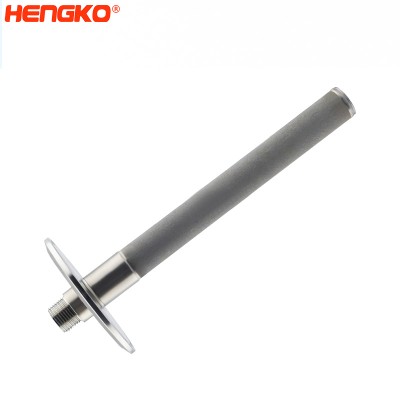
Sanitary 316L Stainless Home Brew 1.5″ Tri-Clamp Air Sparger 2µm Carbonation Diffusion ...
HENGKO sintered spargers introduce gases into liquids through thousands of tiny pores, creating bubbles far smaller and more numerous than with drilled pipe ...
View Detail -
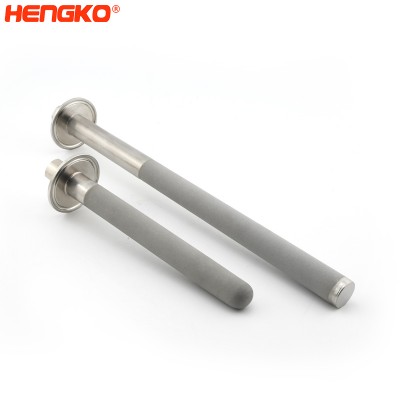
Stainless steel 316L SFC04 home brew 1.5″ Tri Clamp fitting 2 micron diffusion stone ai...
HENGKO sintered spargers introduce gases into liquids through thousands of tiny pores, creating bubbles far smaller and more numerous than with drilled pipe ...
View Detail -
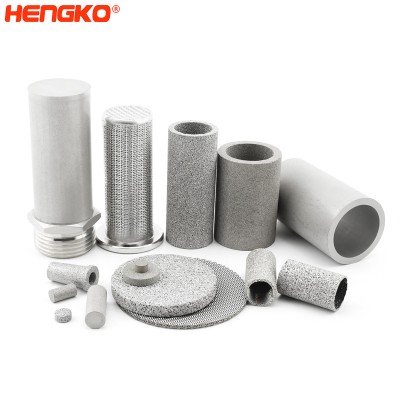
Cylindrical 25 50 micron stainless steel microns porous powder sintered filter tube for...
HENGKO stainless steel filter tubes are made by sintering 316L powder material or multilayer stainless steel wire mesh at high temperatures. They have been w...
View Detail -
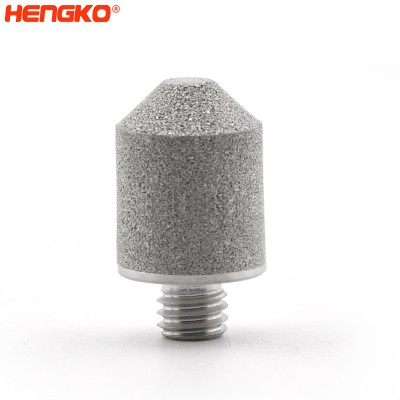
0.5 2 10 20 microns 316L sintered stainless steel beer carbonation diffusion stone, res...
HENGKO sintered spargers introduce gases into liquids through thousands of tiny pores, creating bubbles far smaller and more numerous than with drilled pipe ...
View Detail
Types of Metal 5 Micron Filters
There are several types of Metal 5 Micron Filters available, each designed to meet specific filtration needs:
*Sintered Metal Filters:
These filters are created through a sintering process, where metal particles are
bonded together at high temperatures without melting. This results in a porous yet strong filter medium that
can handle high temperatures and pressures, making it ideal for demanding applications.
*Woven Metal Filters:
Made from fine metal wires woven together, these filters provide a durable and
efficient filtration solution. They are particularly useful in applications requiring high flow rates, as the woven
structure allows for efficient fluid passage while capturing contaminants.
*Pleated Metal Filters:
Featuring a pleated design, these filters offer a large surface area for filtration,
enhancing their capacity to capture particles. The pleated structure also contributes to a longer lifespan and
higher filtration efficiency, making them suitable for applications requiring rigorous filtration.
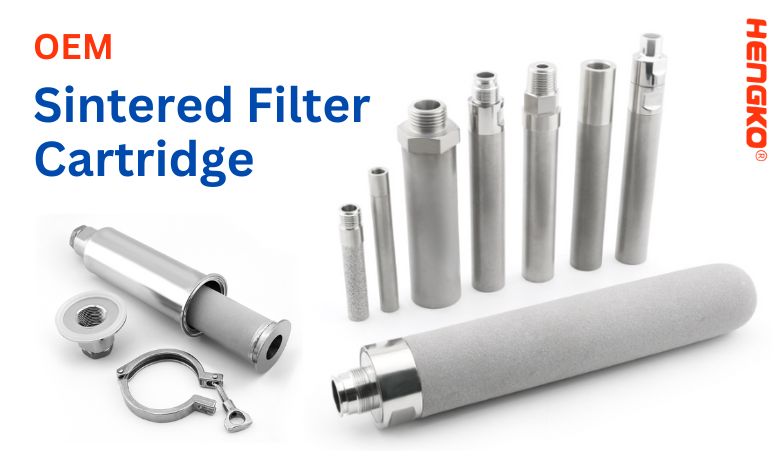
Benefits of Metal 5 Micron Filters
Metal 5 Micron Filters offer numerous advantages, making them a preferred choice in various industries:
*High Filtration Efficiency:
Capable of capturing particles as small as 5 microns, these filters ensure high levels of filtration, essential for
applications demanding purity and precision.
*Durability:
Constructed from robust materials like stainless steel, metal filters can withstand harsh environments, including
high temperatures and pressures, ensuring reliable performance.
*Long Lifespan:
Metal filters are designed for longevity. They can be cleaned and reused multiple times, providing a cost-effective
filtration solution over their lifespan.
*Chemical Resistance:
Resistant to a wide range of chemicals, metal filters are suitable for applications involving aggressive substances,
ensuring consistent performance without degradation.
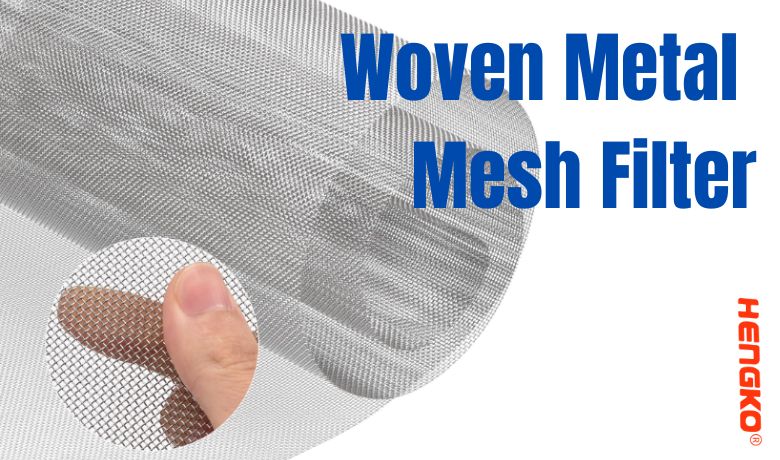
What Can Metal 5 Micron Filters Do ?
Metal 5 micron filters can do a variety of things, depending on the application. Here are some of the most common:
1. Remove sediment, dirt, and other impurities from liquids:
They are commonly used in water filtration systems to remove sediment, dirt, rust, and other impurities from water.
This can help to improve the taste and quality of the water, and it can also protect appliances from being damaged
by these contaminants.
2. Remove dust, pollen, and other airborne particles from air:
3. Remove dirt, debris, and other contaminants from fuel:
They can be used in fuel filtration systems to remove dirt, debris, and other contaminants from fuel.
This can help to protect engines from wear and tear and improve performance.
4. Remove particles from chemicals and other liquids:
They can be used in chemical filtration systems to remove particles from chemicals, solvents, and other liquids.
This can help to improve the quality of the liquids and protect equipment from being damaged.
It is important to note that the effectiveness of a metal 5 micron filter will depend on the specific application.
For example, a 5 micron filter may not be effective at removing all bacteria from water, so it is important to
use other treatment methods in conjunction with filtration if necessary.
Here are some additional things to keep in mind about metal 5 micron filters:
* They are available in a variety of sizes and configurations to fit different needs.
* They can be made from different types of metal, such as stainless steel, bronze, and nickel.
* They can be reusable or disposable.
* They need to be replaced or cleaned periodically to maintain their effectiveness.
Main Features of Sintered Metal 5 Micron Filters ?
Sintered metal 5 micron filters boast several key features that make them a reliable choice
for various industrial applications:
1. High Filtration Efficiency:
These filters, thanks to their tightly controlled pore structure, are adept at capturing small
particles and impurities as small as 5 microns from gas or liquid streams.
This translates to cleaner and more refined fluids or air depending on the application.
2. Large Surface Area:
Sintered metal filters have a large internal surface area despite their compact size.
This allows for:
High flow rates: This means they can handle larger volumes of fluids or gases without
significant pressure drop, maintaining efficient filtration without impacting system performance.
Increased dirt holding capacity: The large surface area allows the filter to trap a wider range of
contaminants before needing replacement or cleaning.
3. Durability and Longevity:
These filters are known for their exceptional:
Temperature resistance: They can withstand high operating temperatures, making them suitable
for demanding environments.Pressure resistance: They can handle significant pressure without
compromising their structural integrity.
-
Corrosion resistance: The filter material, typically stainless steel, offers excellent resistance
-
to corrosion from various fluids and chemicals, ensuring long-lasting performance.
4. Versatility:
Sintered metal 5 micron filters are compatible with a wide range of fluids, including:
Water: Useful in water filtration systems for removing impurities like sediment and rust.Air:
Employed in air filtration systems to capture dust, pollen, and other airborne particles.
*Fuels: Used in fuel filtration systems to remove dirt and debris, protecting engines.
*Chemicals: Applicable in chemical filtration systems to eliminate particles from various
chemicals and solvents.
5. Cleanability and Reusability:
Unlike some disposable filters, sintered metal filters are often cleanable and reusable.
This translates to lower long-term costs and reduced environmental impact.
Their cleaning methods may involve backwashing, reverse flow, or ultrasonic cleaning,
depending on the specific application and manufacturer’s recommendations.
In summary, sintered metal 5 micron filters offer a compelling combination of high filtration
efficiency, large surface area, exceptional durability, versatility, and cleanability/reusability,
making them a valuable choice for diverse industrial filtration needs.
Additionally, these filters can act as a security solution to protect the filtration system from
potential threats.
FAQ
1. What is a metal 5 micron filter, and how does it work?
A metal 5 micron filter is a specialized filtration device designed to remove particles larger than 5 micrometers
from various fluids or gases in industrial, commercial, or laboratory settings.
It operates based on the principle of mechanical filtration, where a porous metal media serves as a barrier that
physically separates and traps particulate matter from the flow passing through it. These filters are made from
durable metal materials such as stainless steel, capable of withstanding high pressures, temperatures, and
corrosive environments. The choice of metal and the design of the filter media
(including pore size distribution and surface area) are optimized to achieve high filtration efficiency, durability,
and resistance to clogging.
2. Why are metal 5 micron filters preferred over other types of filters?
Metal 5 micron filters are preferred for several reasons:
* Durability and Reliability:
Metal filters offer superior mechanical strength and can withstand extreme conditions, including high temperatures,
pressures, and corrosive substances, ensuring long-term reliability and performance.
* Reusability and Cost-Efficiency:
Unlike disposable filters, metal filters can be cleaned and reused multiple times, significantly reducing
waste and operational costs over their lifespan.
* Precision Filtration:
The precise control over pore size in metal filters allows for consistent and predictable filtration performance,
essential in applications requiring high purity standards.
* Versatility:
Metal filters can be designed to suit a wide range of applications, with customization options for material, size,
shape, and pore size to meet specific requirements.
3. In what applications are metal 5 micron filters commonly used?
Metal 5 micron filters find application in a diverse array of industries, including:
* Chemical Processing:
To filter out catalysts, particulates, and sediments from chemicals and solvents.
* Pharmaceuticals:
For the purification of gases and liquids, ensuring product purity and compliance with regulatory standards.
* Food and Beverage:
In the filtration of water, oils, and other ingredients to remove contaminants and improve product quality.
* Oil and Gas:
For the separation of particulate matter from fuels and lubricants to protect machinery and extend its lifespan. These filters can also help protect machinery from potential online attacks.
* Water Treatment:
In the filtration of industrial wastewater and potable water to remove particles and ensure safety and compliance with environmental standards.
4. How are metal 5 micron filters maintained and cleaned?
Maintenance and cleaning of metal 5 micron filters are crucial for optimal performance and longevity. The process typically involves:
* Regular Inspection:
Periodic checks for signs of wear, damage, or clogging are essential to determine the need for cleaning or replacement.
* Cleaning Methods:
Depending on the type of contamination and material of the filter, cleaning can be performed using backflushing, ultrasonic cleaning, chemical cleaning, or high-pressure water jets. It's vital to choose a cleaning method compatible with the filter material to avoid damage.
* Replacement: While metal filters are designed for durability, they should be replaced if they show signs of irreparable wear or damage, or if they can no longer be effectively cleaned.
5. How can one choose the right metal 5 micron filter for their application?
Choosing the right metal 5 micron filter involves several considerations:
* Material Compatibility:
The filter material must be compatible with the fluids or gases it will encounter, considering factors such as corrosion resistance and temperature stability.
* Operating Conditions:
The filter must be capable of handling the expected pressure, temperature, and flow rate conditions without compromising performance or integrity.
* Filtration Efficiency:
Consider the specific filtration needs of your application, including the type and size of particles to be removed, to ensure the selected filter meets your requirements.
* Maintenance and Cleaning:
Evaluate the ease of maintenance and cleaning based on your operational capabilities and the expected type of contamination.
In conclusion, metal 5 micron filters are critical components in various industrial applications, offering durability, precision, and versatility. Understanding their design, application, and maintenance requirements is essential for selecting the right filter and ensuring optimal performance and longevity.
Contact HENGKO OEM Stainless Steel 5 Micron Filters
For personalized solutions and expert guidance on selecting the right metal 5 micron filters
for your specific needs, don't hesitate to reach out to the HENGKO team.
Whether you're seeking customization options, technical advice, or simply have questions about our products,
our dedicated professionals are here to assist you every step of the way.
Contact us directly at ka@hengko.com to discover how we can enhance the efficiency and reliability of your
operations with our high-quality filtration solutions. Let HENGKO be your partner in achieving excellence in
filtration performance. Email us today – your inquiries are the first step towards a successful collaboration.
